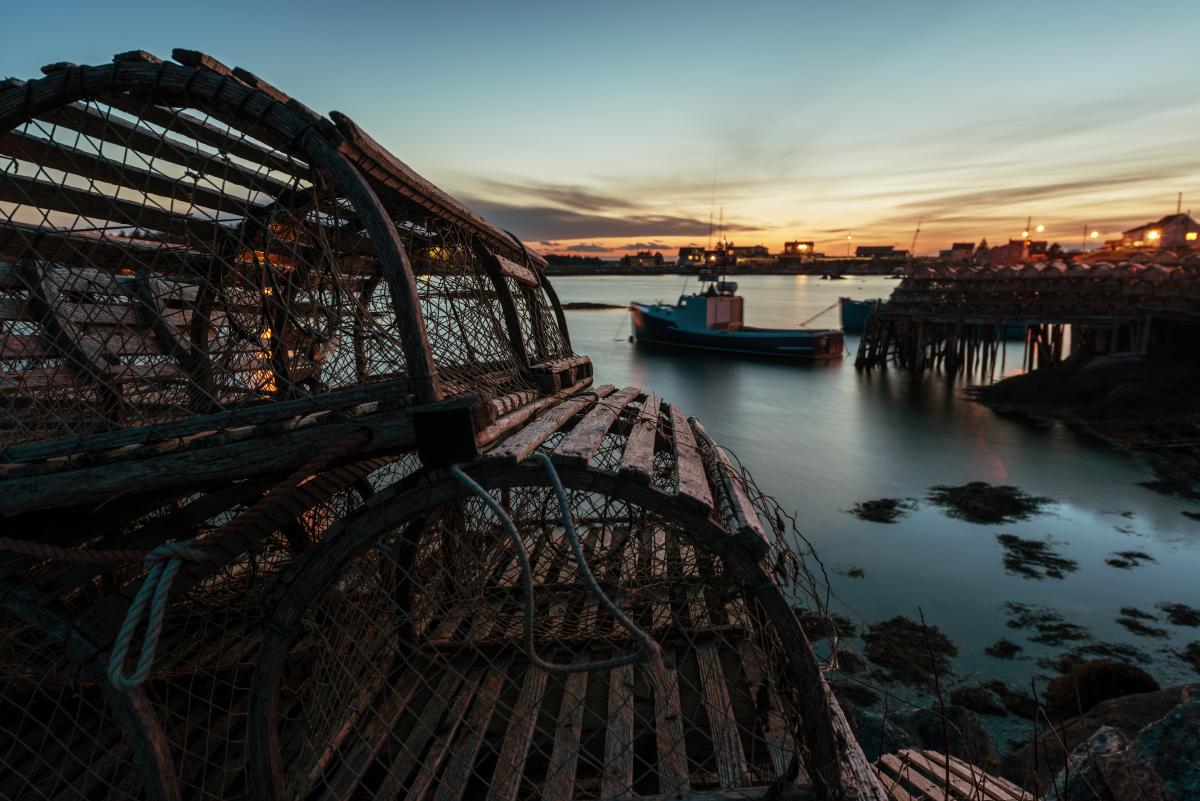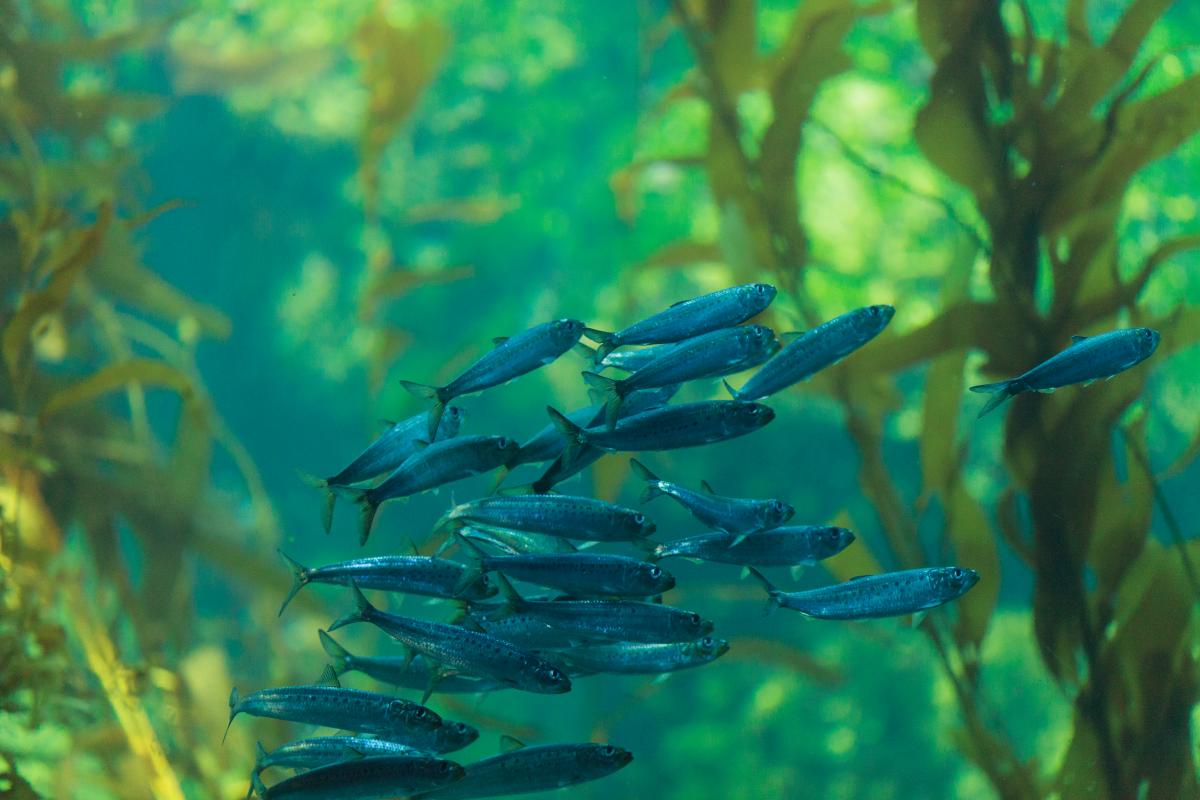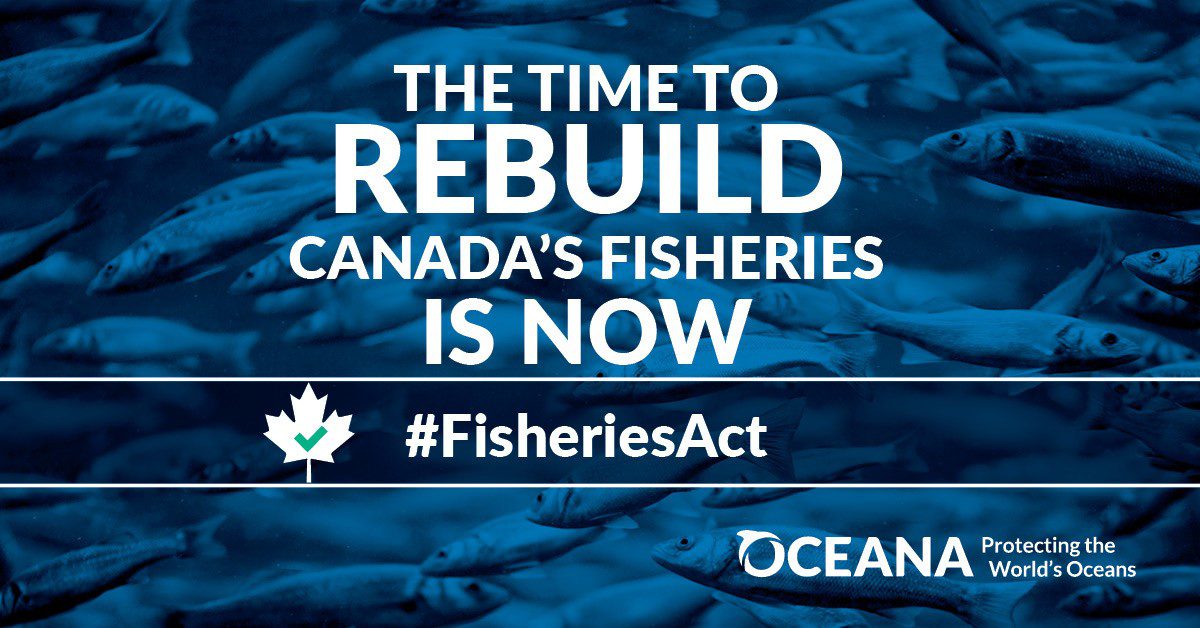April 15, 2019
New Fisheries Act could mark a turning point for Canada’s depleted fisheries
Estimated reading time: 0 minutes
BY: Oceana
Topics: Modernizing the Fisheries Act
Originally published in The Hill Times on April 15, 2019
By: Josh Laughren, Executive Director, Oceana Canada and Roger Augustine, AFN Regional Chief (NB/PEI)
This month, as the Senate reviews amendments to the Fisheries Act, Bill C-68, it has a rare opportunity to help right an historic wrong: the chronic overfishing of our wild fish populations and failure to rebuild them. If the Senate passes this Bill, we can be on the path to restoring the abundance that was once commonplace in our oceans.
The history of fishing in Canada’s oceans extends far back, beyond Confederation 152 years ago. Since time immemorial, Canada’s Indigenous Peoples have had a reciprocal relationship with the oceans, rivers and lakes, depending on them for food, social and ceremonial purposes and for commerce and trade.
The recent history of Canada’s oceans, however, is one of dramatic decline of fish populations and the communities that rely on them. In British Columbia, many salmon stocks are in serious trouble and Atlantic Canadian fisheries are in the vulnerable position of being dependent on only a handful of highly profitable species, like lobster, crab and shrimp. According to a Royal Society Report, overfishing has reduced the amount of fish in Canada’s waters by more than 50 per cent since 1970 – half of this globally important resource that sustained so many for millennia, gone in one generation.
Around the world, the catalyst for fisheries recovery, and the social, cultural and economic benefits that come along with it, has been a legally binding requirement to rebuild stocks. Bill C-68 provides laudable new obligations and expectations and significantly modernizes one of Canada’s oldest acts.

First, Bill C-68 states that the Minister shall implement measures to maintain fish stocks at a sustainable level. While this level is still undetermined for many stocks, and will often be hotly contested, requiring a target is crucial to ensure that Canada develops regulations and policies to sustainably manage fish populations. Second, if a stock is overfished and declines into the critical zone—a level of such significant loss of productivity that serious harm to the population is likely—the Minister is required to develop a plan to rebuild it.
Of course, Bill C-68 will not serve as a cure-all for fisheries management problems. The Minister retains the power to exempt stocks from sustainability requirements for short-term socio-economic reasons. Some populations can rebuild quickly, while others have been overfished to such low levels that they will take many years to recover. We must still grapple with emerging threats like climate change, plastic pollution and habitat destruction.
But it does set expectations and provide direction for a way to better manage our fisheries, and, if acted on, can pave the way for renewed abundance. It sounds deceptively simple: consistently set sustainable (and precautionary) catch limits and, if populations decline, quickly act to allow them to recover. That has not been our past, but it can be our future.
Sustainably managing fisheries will never be easy. Constitutional rights of Indigenous Peoples need to be respected and implemented. Difficult conservation decisions will always need to be made with less-than-perfect information. Competing claims on resources must be weighed carefully, often with no easy answers. But abundant, diverse wild fish populations provide options and opportunities for negotiation. They provide resilience to withstand environmental and human-induced changes. They provide economic stability to communities and more healthy protein to an increasingly hungry world.

Indigenous Peoples must play an active role in rebuilding. Bill C-68 lists Indigenous knowledge as a consideration that must be used in decision-making: this will contribute to Canada’s reconciliation agenda and support an ecosystem approach to managing fisheries. Given the renewed focus on the contribution that Indigenous knowledge can play in assessments and rebuilding plans, applying the values and approaches Indigenous Peoples take toward resource management will help shift the emphasis from simply short-term economic prosperity to long-term ocean health.
Let’s seize this opportunity. We urge the Senate to support rebuilding provisions in Bill C-68, and quickly make it the law of the land, and the sea. We encourage the government to develop strong regulations to give rigour and clarity to the expectations laid out in the Bill.
This is an important step in healing our natural environment. More fish provides more options to resolve conflicts and provides a brighter future for communities that rely on the sea for culture, protein and livelihoods.
Let’s put Canada’s fisheries back on a path to abundance.


